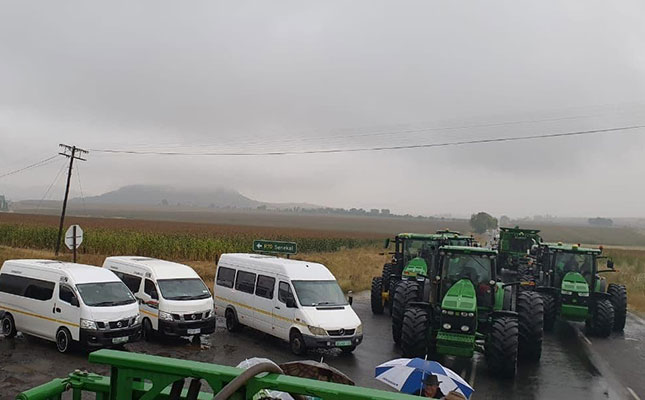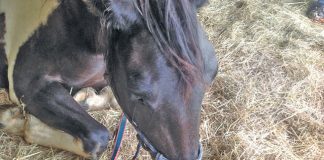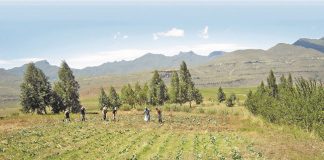
Photo: Friedl von Maltitz
Several organisations took part in protest action, organised by the Ficksburg community forum, Sechaba sa Ficksburg, that saw the closure of a number of roads in the district on Wednesday, 17 March.
Dr Theo Venter, an independent political analyst, said the road closures followed repeated unsuccessful attempts by the local community to engage the Free State provincial government about the extreme deterioration of roads in the district.
Thirteen community organisations, including the Ficksburg Agricultural Association, Ficksburg Taxi Association and Ficksburg Commonage Tenants, took part in the protest.
The Rosendal T-junction, Owanti turnoff and R26/S67 Junction were closed by protesters at 6am on Wednesday, using taxis and large agricultural machinery.
“The community is desperate to be heard. They took this drastic step to [force] the authorities [to] take notice of their plight. The time has come for South Africans to move beyond ideological and political differences to make leaders take notice, as the Ficksburg community has done,” Venter added.
One of the organisers of the protest, Friedl von Maltitz, a farmer in the district, said the protest had been characterised by a spirit of ubuntu and a shared concern about the appalling condition of the road network.
He said all attempts to work with the local authorities had come to naught.
“Government officials just [shrug] their shoulders helplessly and say there is no money available to fix the roads because of the COVID-19 pandemic. It seems as if these [officials] just cannot grasp the importance of the roads for the community at large. The roads have become impassable and downright dangerous for motorists. That is why we had to take action,” Van Maltitz added.
The poor condition of rural roads across the country has, in some areas, made it difficult for farmers to transport products to markets. It has also resulted in increased input costs because of constant breakdowns and tyre losses, Venter said.












